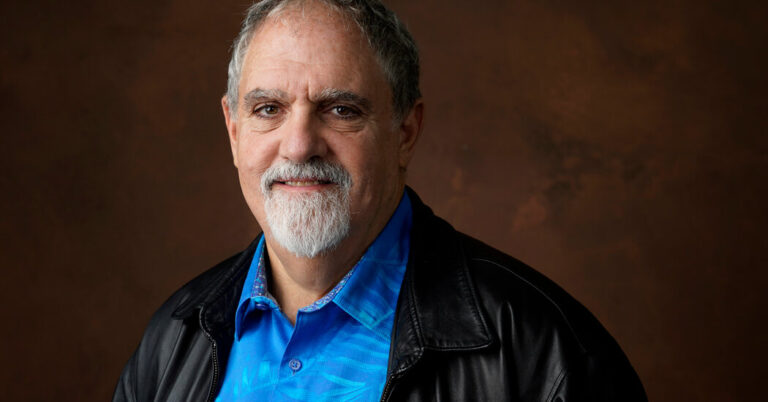Jon Landau, the Oscar-winning producer and longtime collaborator of director James Cameron who helped create three of the highest-grossing films of all time, “Titanic” and two of “Avatar,” has died. He was 63.
Landau died Friday in Los Angeles, according to a family statement provided by Disney. The cause of death was not disclosed.
Landau and Cameron’s decades-long collaboration has made their mark on box office history: their first collaboration, “Titanic,” became the first film to gross more than $1 billion worldwide after its release in 1997. Its total gross of $1.84 billion was surpassed by their next collaboration, the sci-fi epic “Avatar” (2009).
“Titanic” was nominated for 14 Academy Awards and won 11, including Best Picture, which Cameron and Landau shared.
“I can’t act, I can’t compose music, I can’t do visual effects, so I guess that’s why I’m a producer,” Landau said in his acceptance speech.
According to a family statement, Jon Landau was born on July 23, 1960 in New York City. He was first exposed to filmmaking through his parents, Ely and Edie Landau, who worked together to produce ambitious independent films for the masses, including adaptations of stage plays by Eugene O’Neill, Edward Albee and Bertolt Brecht.
Many of these film adaptations were released through a subscription service called American Film Theatre, which the Landaus founded, allowing audiences to see regular film versions of the plays.
Landau studied at the University of Southern California’s School of Cinematic Arts in Los Angeles, and later worked as a production manager on films such as Hogwarts (1989) and Dick Tracy (1990).
He became executive vice president of feature film production at 20th Century Fox, overseeing films such as Home Alone (1990), Mrs. Doubtfire (1993), and Speed (1994).
According to the statement, it was around this time that Landau met Cameron, who was directing the 1994 action comedy “True Lies” for 20th Century Fox. When Landau decided to leave the company, Cameron asked him to read a script for a project codenamed “Planet Ice,” which would later become “Titanic,” and marked the beginning of a partnership that would last decades.
Titanic was not expected to be a box office hit. The film has a runtime of over three hours, and there was a lot of negative press before its release reporting production delays. It cost $200 million to make, far exceeding the film’s budget of $110 million.
After Titanic’s huge success, Landau told the Los Angeles Times in 1998 that during production he “felt like I was the mayor.”
“Everyone involved, including the heads of the various departments – special effects, props, costumes – needed help and support. Sometimes they needed moral support, sometimes they needed financial support,” Landau said.
And when it came to the stress of going over budget by tens of millions of dollars, Landau said, “It was easy to fight for what we wanted because we believed it was necessary to deliver the original vision for the movie.”
“Most producers make budgets, not films,” Cameron told the Los Angeles Times, but Landau disagrees.
“The hardest part is weighing the additional cost against the aesthetic value of the film. You have to get inside the director’s brain a little bit,” Cameron said. “Landau understood what a filmmaker needs.”
“Avatar,” the second film that Landau and Cameron co-produced, has grossed nearly $3 billion worldwide and was nominated for nine Academy Awards, including Best Art Direction, Best Cinematography and Best Visual Effects. A sequel, “Avatar: The Way of Water,” is scheduled for release in 2022.
Landau also served as chief operating officer of Cameron’s production studio, Lightstorm Entertainment, and was the driving force behind the Walt Disney World attractions based on the “Avatar” films.
According to a family statement, Landau is survived by his wife, Julie Landau, two sons, Jamie Landau and Jody Landau, two sisters, Tina Landau and Kathy Landau, brother Les Landau, and other relatives.
In December 2009, just before “Avatar” was released, Landau defended the idea of making such expensive movies, telling the digital magazine Salon that the reasons for doing so were to provide a return on capital for investors, create jobs and give audiences “something they can’t get anywhere else.”
“When people go to see our movies, we’re probably spending more money than other people, and they’re getting their money’s worth,” Landau said. “The amount that people pay to see our movies is the same amount that they would pay to see ‘Paranormal Activity.'”
He also said he made the film for audiences, not for critics or awards voters.
“We want to entertain people. That’s number one,” Landau said. “If there’s anything else, that’s great. But we want people to enjoy the movie not just viscerally but emotionally.”

